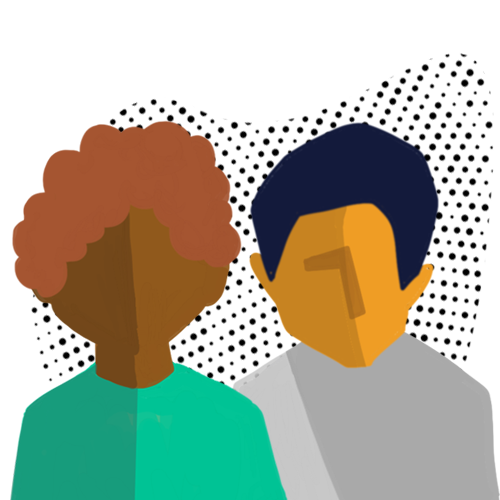Anti-Racism Toolkit
Toward Justice and Equality
This anti-racism toolkit was developed with educators and others working with youth in mind, to help you develop your own racial consciousness and awareness, as well as that of your students. We know that as educators, community members, parents and caregivers, you are aware of how race and racism play a role in your schools and larger community. Most importantly, you must understand the impact that race and racism has on people and students as they grow and develop.
Begin Anywhere
While we are not all in the same place in our anti-racist journeys, it is important that we stay committed to learning about race and racism and its impact and continuing to dismantle our white-supremacist thinking.
Remember, there is no “right way” to start talking about race and committing to an anti-racist journey. What matters is that you do start.

Take A Step Forward
Start with yourself
- Accept that it’s human nature to avoid uncomfortable conversations.
- Remember that we need to be able to listen to others and grow together as a community.
- Assess your comfort level.
- Educate yourself in areas you may be lacking.
Get comfortable with being uncomfortable
- Create a brave space.
- Commit to being vulnerable.
- Use active listening.
- Practice empathy.
- Practice pausing and breathing before responding.
- Ask questions.
Take Action
- Recognize your own privilege and biases. Explore them and challenge them.
- Confront and reject racism in your personal and professional lives.
- Look at the policies in your school, workplace or community. Are there clearly stated anti-racism policies? Do changes need to be made? Check out the Dignity in Schools Model School Code (Chapter 4: Freedom from Discrimination).
- Ask: Has your district conducted an equity audit? Consider advocating for that. If they already have, are they actively working on it? Sustained advocacy is important.
- Ask: Is your district disaggregating school discipline data, reviewing it regularly and acting on it? You can be a voice for that work.
- Ask: Does your school have a safe way for students to report incidents of discrimination? Students and families should have a voice in designing and reviewing that system.
- Volunteer for a curriculum committee and advocate for youth and family voices at the table. Listen to what youth and families want and advocate with them for an anti-racist curriculum.
- Check out this Culturally Responsive-Sustaining STEAM Curriculum Scorecard from New York University.
- Audit your school library.
Resources for Educators
Anti-Racism Scavenger Hunt
This is a great way for educators and community members to start your anti-racist journey and begin to dismantle racism both personally and professionally in your daily lives. We recommend that you make a copy for yourself so that you can check off as you go and take notes on what you have learned.
PBS Tools for Anti-Racist Teaching
This is a brief four-part series by PBS that helps educators explore tools for anti-racist teaching. The series focuses on deepening your understanding of race and racism, using media to know better and teach better, amplifying student voices, and focusing on young learners.
School Discipline Bias Mental Checklist
A tool to help educators examine your biases, dismantle them and make better decisions. When we ignore our biases, we uphold discriminatory practices and white supremacist thinking.
21 Anti-Racism Videos to Share with Kids
A compilation of 21 anti-racism videos developed by We are Teachers. These videos are designed to support you as you navigate difficult conversations about race with your students and guide them on their anti-racist journeys.
Learning for Justice Classroom Resources
Learning for Justice is an organization focused on racial justice and partnering with community members to dismantle white supremacy. They have compiled a list of free classroom resources for educators (lesson plans, student texts and posters, for example) to utilize as they bring racial justice issues into their classrooms.
Talking About Race
Talking about race isn’t always easy, but it’s necessary. The National Museum of African American History and Culture has developed a great collection of resources and tools for educators, parents & caregivers, and others to utilize in their journey.
Recommended Trainings
Social Justice Education, Training, and Coaching for Individuals and Organizations, Justice Leaders Collaborative
Eliminating Racism and Creating/Celebrating Equity (ERACCE)
Introduction to Systemic Racism Workshop – 1 day
Understanding and Analyzing Systemic Racism Workshop – 2.5 days
Cross Cultural Conversations, Jackson Nonprofit Network